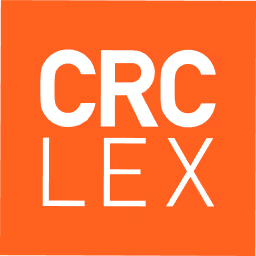Regulation and Startups: Overcoming Obstacles to Unlock Innovation in Europe. SNS report 2024
Europe is accelerating its pace towards building ecosystems that are more favourable to startups, as demonstrated by the recent Annual Report on Startup Standards 2024, published by the Europe Startup Nations Alliance (ESNA).
The Report highlights the significant progress made by European countries in adopting policies that stimulate the growth of new businesses, essential for innovation and global competitiveness. But is growth really in all sectors? How is the legal regulation in the EU for Start-Ups going?
CRCLEX constantly analyzes Italian and European data and regulatory developments concerning the start-up ecosystem to provide legal assistance based on strategic growth, with a clear vision of the market context in an evolutionary key.
2024 saw a growing commitment to improving the environment for startups, as demonstrated by the level of adoption of the Startup Nations Standards (SNS), a set of principles and criteria aimed at measuring the level of excellence and areas for improvement with respect to the creation of a favorable environment for start-ups, to support entrepreneurship and innovation.

The Startup Nations Standard Report 2024
The report highlights that most European countries are making progress in implementing key policies, such as access to finance, attracting talent and creating regulatory spaces that allow startups to grow efficiently and competitively.
In 2024, there was an average level of SNS implementation of 61%, with data clearly improving compared to access to finance and the attraction of talent.
The purpose of the Report is to provide ideas and concrete data, in particular to political leaders, at a particularly central moment in the debate on the relaunch of Europe's competitiveness, which, with the Competitiveness Compass, focuses on the need to base Europe's productivity on innovation, as a guiding principle for increasing global competitiveness.
The regulatory challenges for startups: slow progress in Europe
In the 2024 Startup Nations Standards Report, a significant reality emerges: innovation in regulations is declining, with a 43% decrease in the implementation of policies that simplify regulations for startups. This point is crucial, since innovative and simplified regulation is one of the main keystones to stimulate innovation and promote the growth of startups. Although other areas, such as access to finance and attracting talent, have made significant progress, regulatory reform seems to have not kept up.
The role of regulations in the European startup ecosystem
Regulatory simplification policies are essential to promote a dynamic and competitive business climate, in particular for innovative startups that face unique challenges. Startups often face a regulatory maze that can hinder their ability to grow and adapt quickly to the global market.
The lack of agile regulation and the slow adoption of regulatory innovations prevents startups from fully exploiting their potential. Startups face bureaucratic barriers that limit their ability to scale and international perspective. While on the one hand, policies for access to finance and support for other business initiatives have increased, on the other hand, the slowness in innovating at the regulatory level risks reducing the effectiveness of these policies, especially for small businesses and new technologies.
On a European scale, the regulatory labyrinth also derives from the divergences between tax and corporate law rules that prevent scalability at an international level.
European policy makers have declared their intention to address regulatory differences and complexities through concrete measures to narrow the innovation gap between Europe, China and the United States by breaking down regulatory barriers.
The importance of an agile regulatory reform for the future of startups
In a world where technology startups are crucial for innovation, it is essential that regulations are able to adapt to the constantly evolving needs of the market. The decrease in regulatory innovation is a wake-up call for European governments, which must do more to reduce red tape and create legal environments favorable to startups. Only with agile regulatory reforms will it be possible to guarantee an ecosystem favorable to growth, which can truly support the ambitions of European startups and allow them to compete on a global scale.
With the Competitiveness Compass, the European Commission announced a strategy dedicated to start-ups and scale-ups and the proposal to create a single set of rules for innovative companies called the “28th Regime”. The proposal, which is inspired by Delaware C Corp and the Draghi Report, is expected at the end of 2025, and should concern aspects of corporate, bankruptcy, labor and tax regulations that would apply regardless of the Member State in which the companies operate or raise investments.
The idea of an optional legal framework to harmonize contract and corporate laws within the European Union is not new, as demonstrated by the opinion of the European Economic and Social Committee of 2011 and the Statute of the European Company (SE), which has not actually taken shape.
The idea is widely supported by all European organizations that represent startups with various initiatives including the Non paper “How can a 28th regime company status help young and innovative companies to scale in Europe?” and the “EU Inc” petition.
Among the most important objectives are to standardize investment processes, establish a unified incentive compensation program, simplify cross-border transactions, such as employment and capital flows, and completely digitize the constitution process.
In any case, the policy scenario seems to be rapidly evolving, with important intentions for positive change with a view to simplification and bodes well for an improvement framework in view of the 2025 Report.
Conclusion
CRCLEX is committed to sharing its experience in assisting numerous start-ups to contribute to the definition of the future legal framework for innovation and to assist companies in navigating a complex and rapidly evolving regulatory framework. We accompany companies in their growth with vision and strong expertise in the field of commercial law, international contracts, data protection, new technology law, financial market regulation and fintech. The 2024 Report confirms that Europe is setting the stage to become a true global hub for startups, and CRCLEX is here to ensure that businesses are protected and have the right legal resources to thrive in this rapidly changing environment.




